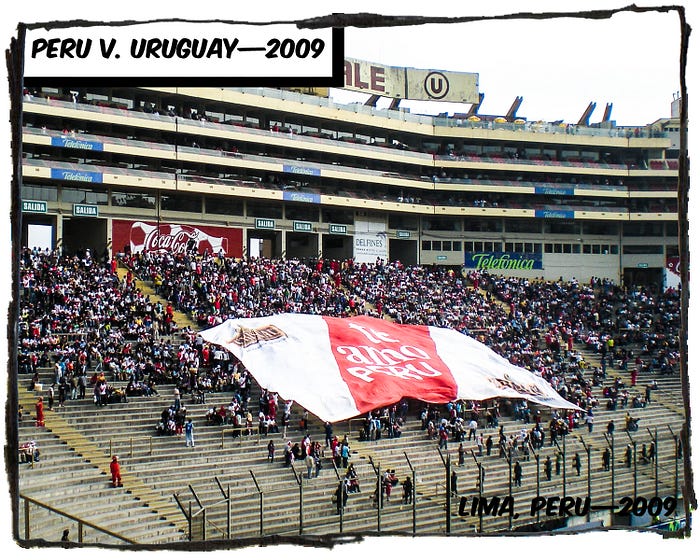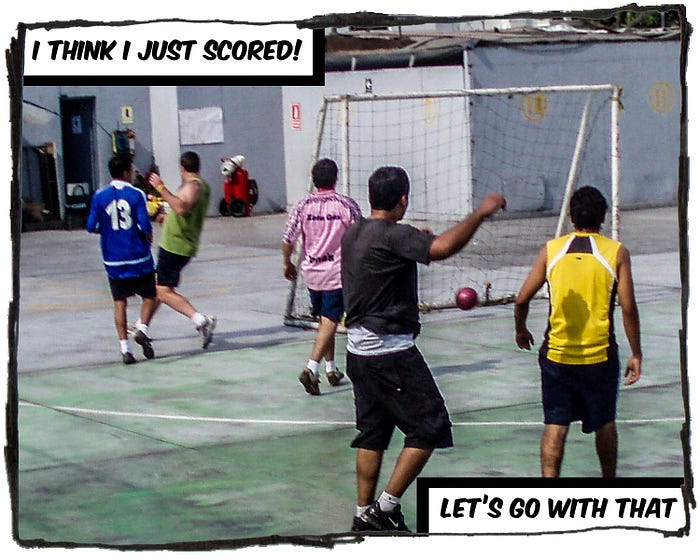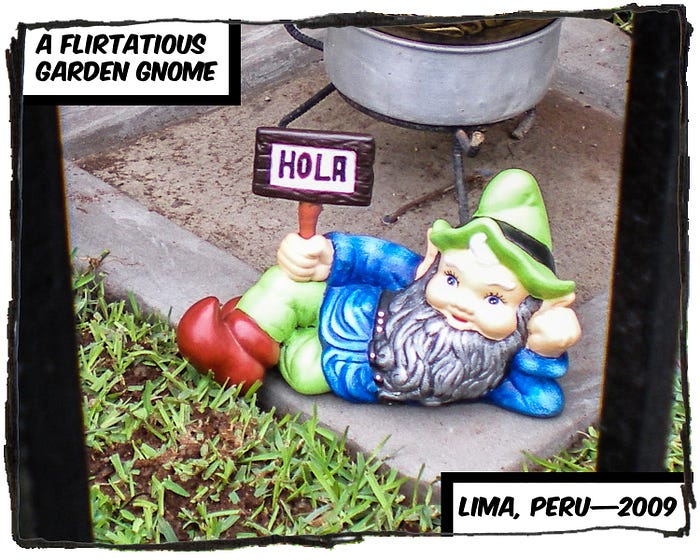LIFE
I grew up in a household that didn't value manners. We occasionally said "please" and "thank you" but it was always done with a smirk. We weren't really trying to be polite. Instead we'd become accustomed to making manners into a source of mockery.
It wasn't just my family, this attitude extended to my whole community. Our entire sense of humor was based on challenging boundaries. If we said something that got a laugh, we took it as encouragement to take it a step further. The comedy didn't stop until somebody said something so awful that whatever authority figure was present had to react.
Most of the time we escaped punishment because whoever was in charge had to begrudgingly admit that they'd let the situation escalate. We were all tiny little dishonest lawyers perpetually arguing our innocence.
Even when I was immersed in this form of hateful culture, on a deep level I felt that something was wrong. On many occasions, I made a joke that I knew to be hurtful and justified myself by thinking, "She'll take note of the context and understand this is hilarious." Sometimes that was true, but of course I was never content to stop. I always had to push it until somebody became offended.
This attitude lurked in the back of my psyche until I first traveled abroad at age 19. My experience with a new culture allowed me the first glimpse of how truly toxic my behaviors had become. It also provided me with the motivation to become a better human being.
We must learn to celebrate different viewpoints
You'll often hear Americans make massive generalizations to disparage the entire population of a country. People will say things like, "Oh, the French people are very rude." I've seen speakers say this to a room full of people, none of whom have ever even been to France. I've witnessed the majority of the audience bob their heads in agreement.
I've never been to France but I've met a few French people in my travels. The ones I met were wonderful! In my experience, there's no cause to label all French people as "rude."
When I had the opportunity to go to Australia, people said, "I've heard Australians are nice, they have a good sense of humor." This is what the people of my hometown in Northern Wisconsin said. Everything they knew about Australia came from having watched Crocodile Dundee.
When I arrived in Australia, I found that they did have a sense of humor that was similar to mine. However, there was a line that I couldn't see, and when I crossed that line I did not get the reaction I'd hoped for.
Crude humor attracts a crude crowd
Whenever you go abroad, you become a novelty. People from social classes that would never interact with you back at home are compelled by their curiosity to seek you out.
It's wonderful!
No matter what anyone says, it's not easy to be the center of attention. When I was 19, I was something of a nervous talker. Words started flowing out of me and I had little to no idea as to what I would say next. I've gotten into flow states while speaking and people have come up to me later to say, "I don't know how you're able to do that."
I prefer writing to speaking because it allows me to go back and take the edge off my words. I don't deliberately say things that are hurtful, but sometimes you say something that can be misinterpreted. If you're speaking to a crowd and they interpret your words incorrectly, it can create an energy that causes you to take your discourse in the worst possible direction.
When I first started interacting with people in Australia, I received a positive response. People laughed. Like always, I went further in pursuit of an even bigger laugh. Eventually, like always, I went too far. But in Australia, the response was different to what I'd generally found in the U.S.
I wasn't scolded. People just drifted away and stopped talking to me. I was left in the company of individuals that I didn't like. I realized these were the people who appreciated my kind of humor.
America doesn't respect boundaries
Yesterday I was watching the UEFA European Soccer Championships with my wife. It was a match between Scotland and Switzerland. The camera panned to the fans in the stand, and I found myself longing to be with them.
When I lived in Peru, I learned to appreciate soccer. I was in my 20s, and I came to realize that even if you don't understand a game, you can enjoy the energy in the room. I'd go out and have my beers and scream at the television along with all the Peruvians at the bar. They loved it! It was a blast!
But watching a soccer game has a completely different energy than watching a game of gridiron football. During the UEFA broadcast, the announcers mentioned how the spectators stuck around to help clean up the stadium after the game. That's a level of civility we don't have in the U.S.
I wonder to what degree the famous American lack of civility is connected to a cultural humor that's entirely fixated on challenging boundaries.
At some point, I came to the realization that it was wrong to push and push and push and not stop until somebody finally got hurt. That's not the road to getting a "big laugh." That's the road to ending up miserable and alone.

People withdraw when you cross the line
In the United States, people are more inclined to give you a second chance. Even so, they remember the awful things that you say in the name of humor, and they don't forget. In other countries, people don't tolerate that. They simply absent themselves from your company.
They don't try to change you. They don't explain why you're being rude. They just stand up, dust themselves off, leave, and they never return.
At first, I responded to this behavior like any other American, "Those people are rude! What's wrong with them! Don't they know the rules!" But eventually I had to come to the conclusion that my behavior was the problem.
This isn't an easy realization to make. In fact, it's harsh. You've got to look yourself in the mirror and accept that it's your behavior that's driving other people away. It's not "them." They're not being "rude." It's you! If you want to have quality friends who are kind and supportive, you have to start acting like a decent human being.
My breakthrough came with learning a foreign language
I was 26 when I moved to Peru and I was still struggling to live a life that aligned with my authentic self. The problem is that even when you resolve to be a better person, it's so easy to fall back into familiar patterns.
If I joined a crowd watching a football game in the U.S., crude comments would come to mind without any effort. It's hard not to say something when it's flashing in your thoughts and you know it's going to get a massive laugh.
When I moved to Peru, I couldn't speak Spanish. It didn't matter if crude comments came to mind, nobody could understand them anyway. Breaking myself of my poor habit of challenging boundaries followed a similar pattern to when I quit drinking. After about three months, the cravings go away and you barely have to think about it.
By the time I had become fluent in Spanish, I was reformed. I'd adopted a new philosophy that wasn't fully dependent on hurting people in order to get attention.

I learned to respect boundaries
When I first started my travels, my impression of other cultures was that they lacked the courage to say what was on their minds. In my ignorance, I concluded that this attitude must have developed due to authoritarian restrictions on their right to free speech. I resorted to my default conditioning of believing I needed to be "grateful to be an American."
"Free speech, use it or lose it!"
But the more time I spent abroad, the more I began to realize the benefit of moderating my comments. Again and again, I found acceptance among groups who were crude and loud and socially excluded. Worse, they didn't merely regard me as similar to them, they regarded me as mentor. I was the living stereotype of the obnoxious American who could teach them how to be worse than they already were.
I decided that the world didn't need more of that, so I worked to quit behaving that way. I put aside my cultural fears of the "dangers" of self-censorship and resolved to speak only kindness. I went from mocking the people who stay after soccer games to help clean up, to joining them.
I found it's a better way to live.
You're not free if you're compelled to act against your own interests
Ultimately, it came down to giving myself the freedom to choose not to push boundaries. As I look around the United States of America, I see a lot of people who are apparently driven by no other motivation than to challenge any restrictions on their behavior.
It's as if they can't help themselves. The second somebody tells them not to do something, they rush out to do it without giving any thought as to whether the warning might have been to their benefit. If you don't stop to make a conscious choice then you're under control.
In our fixation on freedom, we often surrender all our autonomy. Just because you can do something doesn't mean you have to. Sometimes you're happier if you don't. It's a wonderful thing when you discover the crowd doesn't love you more if you go a step too far. The truth is, they love you more when you learn how to be a model of decency.

